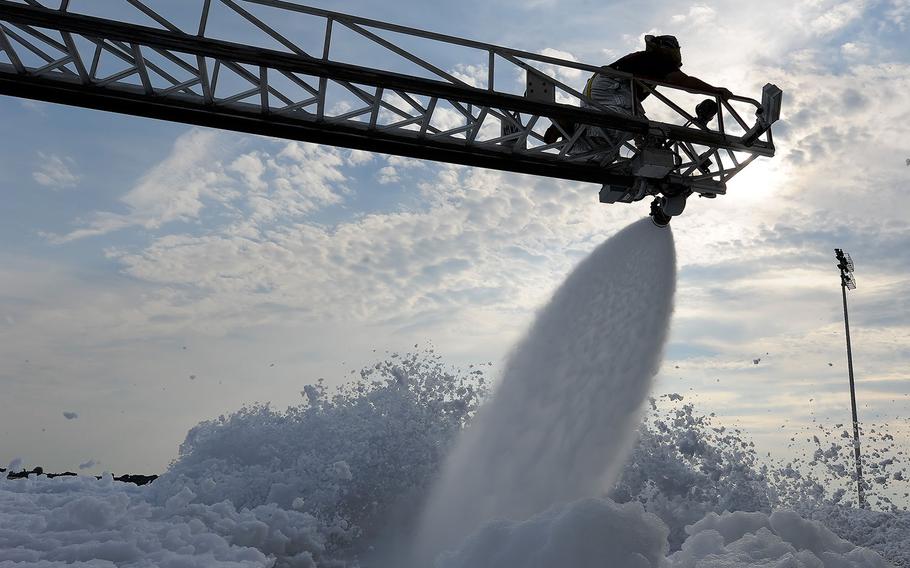
A civilian firefighter with the 436th Civil Engineer Squadron Fire Department works the nozzle of a ladder truck hose to spray foam on Sept. 16, 2013, at Dover Air Force Base, Del. (Greg L. Davis/U.S. Air Force)
WASHINGTON – The U.S. House voted today to pass an annual defense authorization bill that included measures that could potentially affect individuals living near the closed Wurtsmith Air Force Base in Oscoda, Mich.
The legislation – which must now go to the U.S. Senate for consideration – included a measure introduced by U.S. Rep. Dan Kildee, D-Flint Township, and others requiring the Defense Department to study the health impacts of exposure to certain chemicals used at Wurtsmith and other military bases.
Another measure requires the Pentagon to report to Congress on the status of developing an alternative to perflourinated chemicals – also known as PFCs – that were found in firefighting foam used at Wurtsmith and elsewhere.
The base closed in 1993 but the state Department of Health and Human Services in 2012 issued a “do not eat" fish advisory for all fish caught from Clark's Marsh and for resident fish in the lower Au Sable River, south of the Wurtsmith property, after unsafe levels of PFCs were detected.
DEQ surveys of wells also found elevated levels of PFCs, leading state and local officials to recommend residents use alternative water supplies, even though the levels did not exceed federal advisory standards. The state has been working on switching affected well users to municipal water supplies.
“I am pleased the House has acted on our bipartisan amendments to help veterans exposed to harmful PFCs receive the medical attention they need,” said Kildee, noting that the measure requires the study to take place nationwide, not just at Wurtsmith.
“The Air Force and the Department of Defense must do more to address harmful chemicals like PFCs, including caring for veterans exposed to these toxic substances as a part of their service but also residents living near military bases who now have contaminated drinking water,” he said.
———©2017 the Detroit Free Press Visit the Detroit Free Press at www.freep.com Distributed by Tribune Content Agency, LLC.